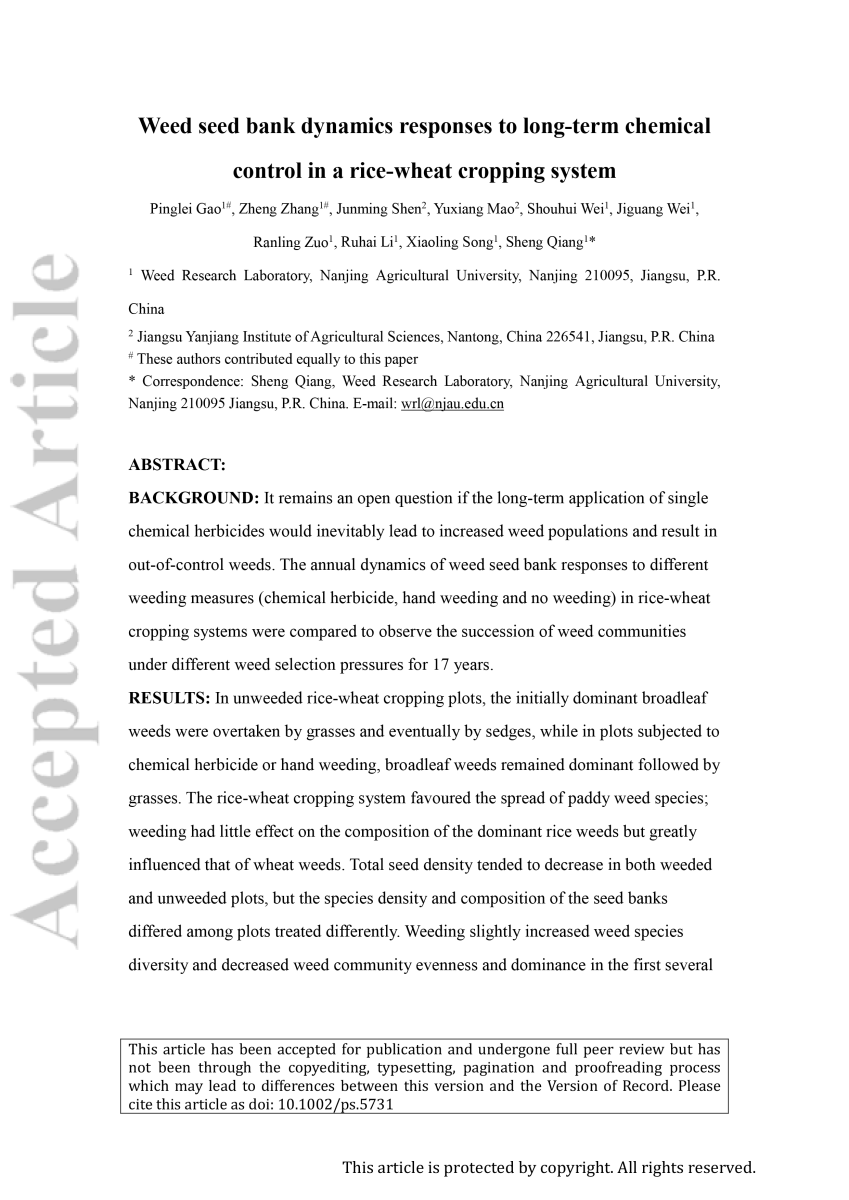BACKGROUND: It remains an open question if the long-term application of single chemical herbicides would inevitably lead to increased weed populations and result in out-of-control weeds. The annual dynamics of weed seed bank responses to different weeding measures (chemical herbicide, hand weeding and no weeding) in rice-wheat cropping systems were compared to observe the succession of weed communities under different weed selection pressures for 17 years.
RESULTS: In unweeded rice-wheat cropping plots, the initially dominant broadleaf weeds were overtaken by grasses and eventually by sedges, while in plots subjected to chemical herbicide or hand weeding, broadleaf weeds remained dominant followed by grasses. The rice-wheat cropping system favoured the spread of paddy weed species; weeding had little effect on the composition of the dominant rice weeds but greatly influenced that of wheat weeds. Total seed density tended to decrease in both weeded and unweeded plots, but the species density and composition of the seed banks differed among plots treated differently. Weeding slightly increased weed species diversity and decreased weed community evenness and dominance in the first severalyears, but this scenario could have negative consequences in the long term; however, without weeding, stronger interspecific competition led to a decrease in weed species diversity whereas weed community evenness and dominance increased.
CONCLUSION: Long-term and repeated application of pre-emergence chemical herbicides and hand weeding had similar effects on the weed community dynamics, indicating that exclusive application of pre-emergence herbicide could maintain the weed community at a durable relatively low infestation level.
